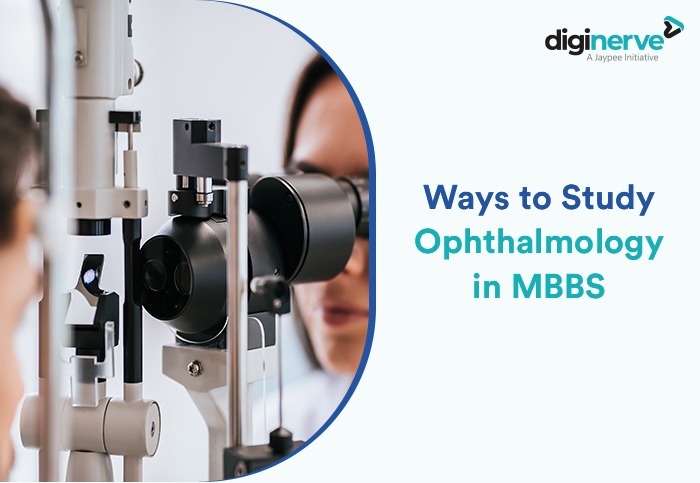An integral subject of the MBBS curriculum, Ophthalmology deals with the study of eyes- diseases and disorders of the eye and the adjoining areas. An Ophthalmologist specializes in eye care and administers diagnosis, treatment, surgery, and prescription of eye-related ailments. But this subject isn’t easy as a student has to retain detailed information about all the diseases of the eye as well as important clinical cases. Hence, a strategic approach is needed to master this subject from the scratch and pave the way for becoming a top Ophthalmologist in the future. Ophthalmology lectures for medical students are extremely helpful for students, provided the student adopts the following ways –
1. Plan your learning goals for the long term: The Ophthalmology concepts that you learn during MBBS are for a lifetime, as not only your post-graduation studies will depend on it, but throughout your career as an Ophthalmologist, the concepts will serve as a foundation for your expertise. Hence, whenever you come across a concept either in the classroom or through Ophthalmology online lecture, ensure to connect the concept with a logical structure. Linking it with previously learned concepts will help you see the bigger picture and save you from memorizing a lot of stuff.
2. Have a consistent source of learning material: Books from numerous publications as well as anonymous study materials are available in the market. Ensure that you learn only from the top-quality study material. Select content of superior quality that is extremely effective for scoring high. Even if you choose to go for online video lectures, MCQs, notes, and clinical cases, make sure they are aligned with your textbook.
3. Devote time for Ophthalmology regularly: There
shouldn’t be an interval of days and weeks between learning a concept and
revising the same. To achieve clarity in concepts, one has to put persistent
efforts into learning them. Hence, plan a routine where you will be needed to
devote a minimum of two hours per day to Ophthalmology.
4. Take help from experts whenever needed: As an MBBS student, it should be your goal to never leave a learning gap unnoted. In case you are unable to understand a particular concept during a classroom lecture, you scored badly during self-assessment, or you are unable to link concepts with each other, you should seek help from your teachers or online Ophthalmology experts.
5. Review your performance: It is important to
assess your knowledge through MCQs, and long-format questions. Reviewing is an
essential tool for active learning. Apart from identifying learning gaps,
reviews also contribute to maximizing comprehension and retention.
6. Use learning tools like highlighting, taking notes, flashcards, outlining, etc. These simple practices help in remembering information better. You can also make learning interesting by including MCQ, flow charts, tables, etc.
FAQs.
Q. Should I follow two or more publications for
learning Ophthalmology?
Ans. For ideal results, stick to a single publication only. However, for better conceptual clarity, you can go for Ophthalmology video lectures online, along with premade notes and MCQs to practice.
Q. What is the best format for quality content?
Ans. While reading the textbook is sufficient, you can opt for online ophthalmology courses like DigiNerve’s Ophthalmology for UnderGrads course. It provides the best quality content in varied formats such as video lectures, lecture notes, MCQs, and clinical questions that are not usually found.
Q. How to prepare for Ophthalmology viva?
Ans. Preparation of viva is not
different from preparing for MCQs or long format questions. Having in-depth
knowledge of concepts will help you in Ophthalmology.

Comments
Post a Comment